By Amari Henderson
MURFREESBORO, Tenn. — Growing up in Augusta, Georgia, former U.S. Marine and law enforcement officer Isaac Ford Jr. would go on to serve there as a police officer after his 25 years in the military, all part of three decades of experience in leadership and social work.
The motivational speaker, consultant and author brought that wealth of life experience to the Middle Tennessee State University recently for “A Conversation on Resilience and Perseverance” hosted by MTSU’s Office of Intercultural and Diversity Affairs.

Now CEO of Isaac Ford Jr. and Associates, Ford experienced numerous challenges in his life such as corruption in the police system in which he worked and repairing the relationship between him and his mother, who stabbed him at a young age.
Those experiences propelled him to devote his life to telling his story, motivational speaking, and promoting diversity, equity and inclusion. He shared his story at MTSU before discussing a wide array of topics such as men’s mental health as well as the importance of diversity.
“His interactive and storytelling-based presentations resonate deeply with diverse audiences, making this event especially relevant for our faculty, staff, and students,” said Danielle Rochelle, director of Intercultural and Diversity Affairs.
U.S. Navy veteran, community leader and MTSU student Ben Thompson moderated the Oct. 9 event held in Keathley University Center Theater.
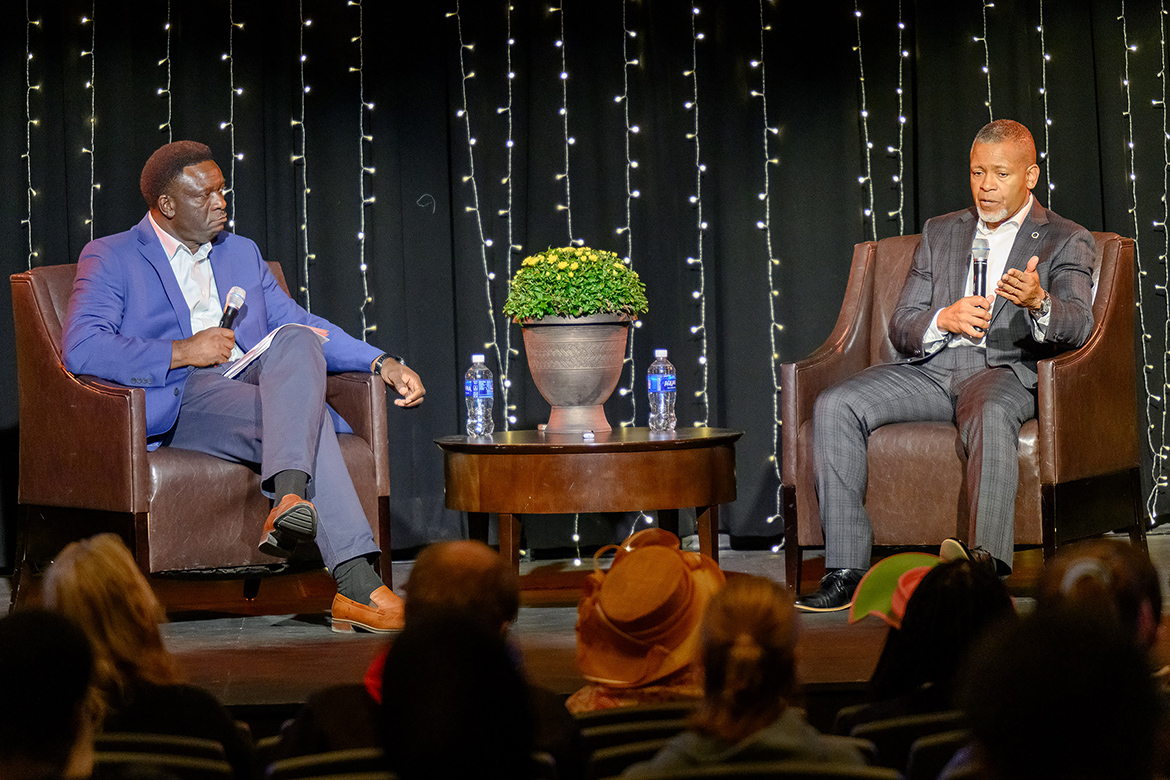
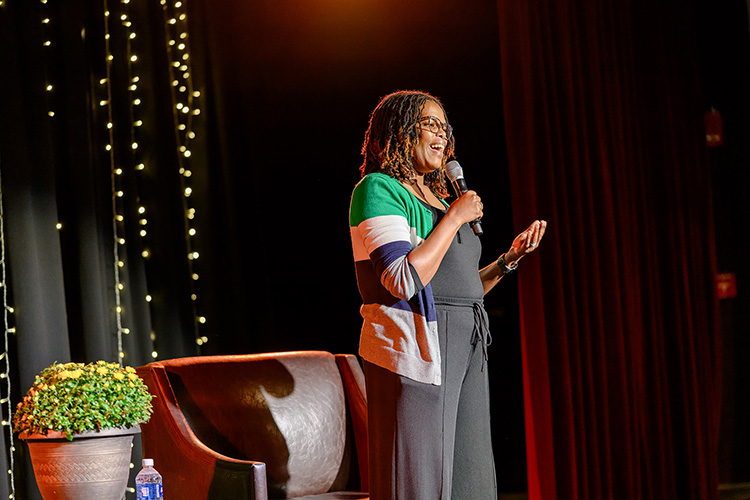
‘Vulnerability is not weakness, it’s strength’
When asked about male vulnerability, Ford explained the importance of men having a safe space to be vulnerable, adding that men too often bottle up their emotions, eventually leading to destructive behaviors.
“Even hardened soldiers, combat veterans, marines … we can be all those things, but we’re still human beings. We’re not charcoal, we’re not machines,” said Ford, who earned a bachelor’s degree in organizational behavior before earning his master’s in social work from the University of Southern California and a certification in diversity, equity and inclusion from Cornell University.
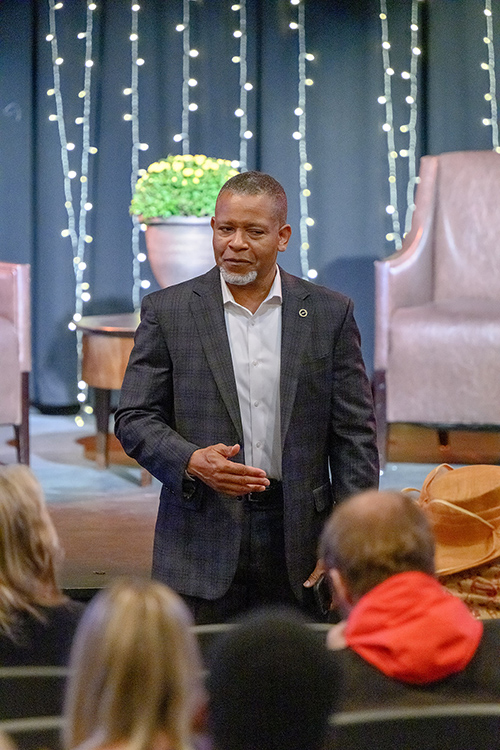
On the topic of diversity, Ford believes it is important to have these conversations because it reflects where America is going. It isn’t about getting something for free or affirmative action, he said, it’s about fairness.
He noted that some states are trying to rename DEI and believes that whatever people decide to call it, it’s important to have these conversations and promote fairness.
“California is the first minority majority state. That’s where our country’s going. It’s different, doesn’t look the same as it did in the 50s,” he continued, noting the nation’s population trends. “So the more educated we can be about how our country’s changing and make a space for everybody, that’s actually a good thing.”
‘She’s the mother that God gave me’
Ford also tapped into his personal biography in sharing insights with his MTSU audience.
As noted on his website, Ford was born in Washington, D.C. and grew up in a segregated section of Augusta, Georgia, affectionately called the “Bottom” in the Delta Manor housing projects. His father was absent from the home during his childhood, and burglars once broke into the family’s home while they were still there.
At age 9, he was almost crushed to death by a falling flagpole, but it was at 13 years old that his most trusted person on the planet — his mother — punctured his left lung with a steak knife. Ford said he attributes his desire to repair his relationship with his mother to his faith in God and his grandmother’s words of wisdom.
“She’s the mother that God gave me,” he said.
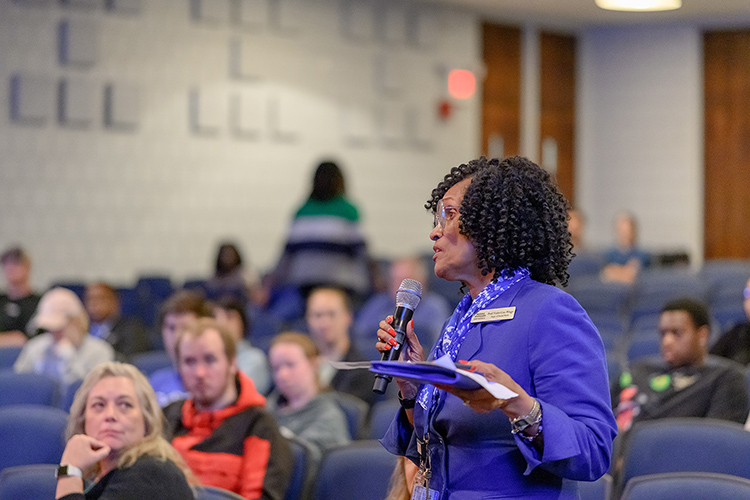
Over time he would begin to make steps toward visiting her and forgiving her — trying to learn about his mother’s upbringing and struggles to better understand why she would harm him.
Ford said he and his mother had a good relationship near the last 30 years of her life, before she lost her battle with pancreatic cancer. In her final moments, Ford said he let his mother know that he loved her and forgave her.
“The Bible says, ‘Honor thy mother and father, so that your days be long.’ It didn’t say they would be perfect… When you hang on to things to a certain level, they can destroy you,” he said, noting that he shares more about his complicated relationship with his mother in his memoir, “Up From The Bottom.”
— Amari Henderson is a senior journalism major from Murfreesboro. He can be reached at arh9y@mtmail.mtsu.edu.
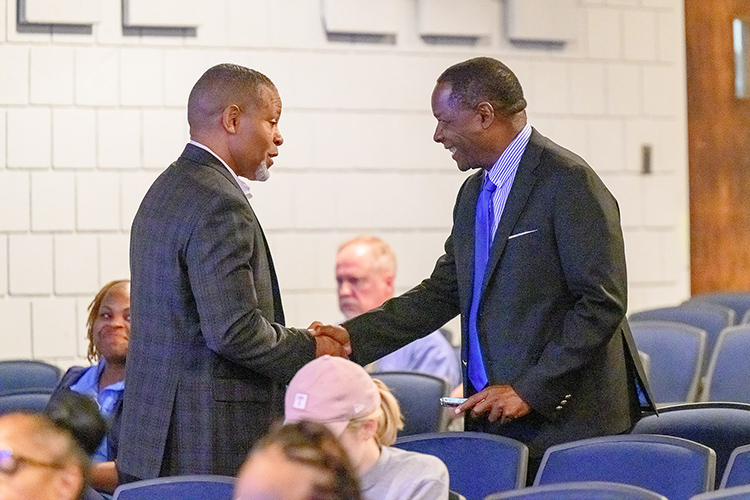
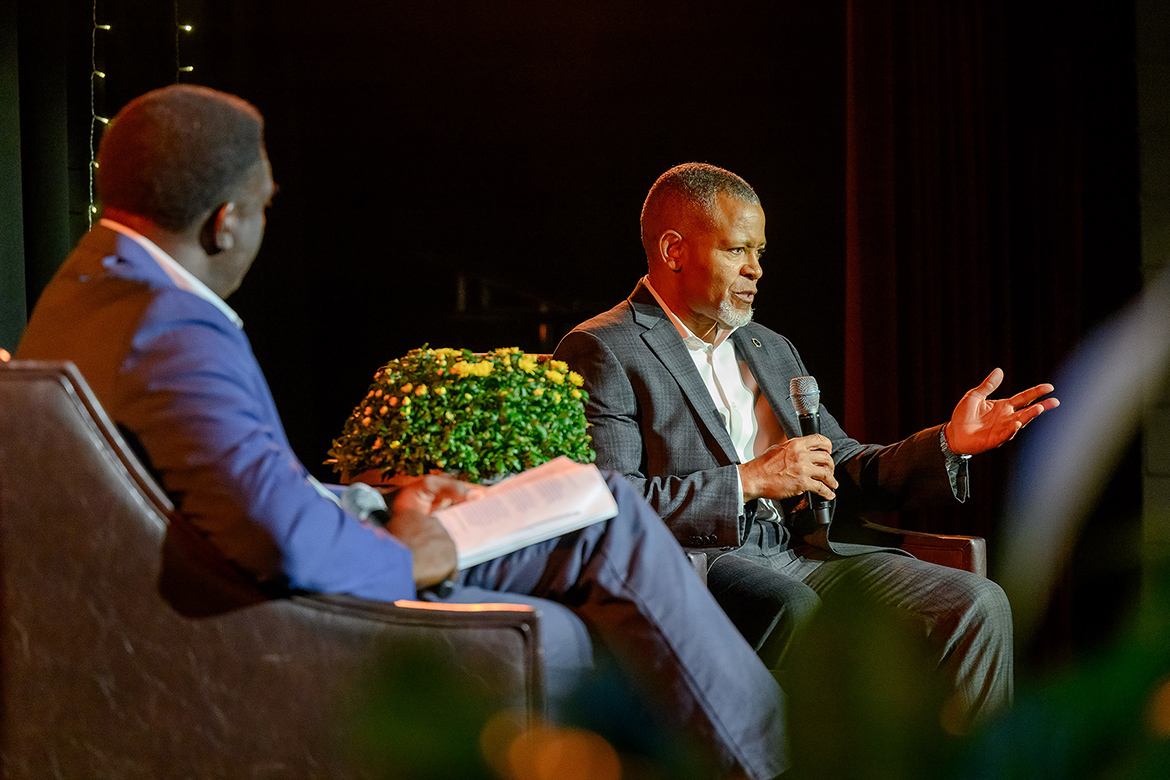

COMMENTS ARE OFF THIS POST